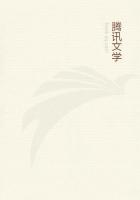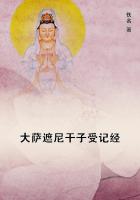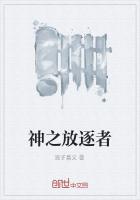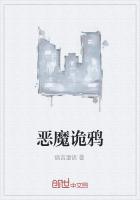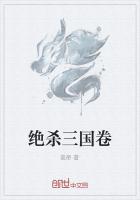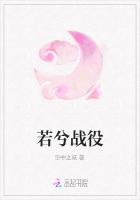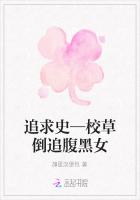It is on this basis that the printers of today are returning to "old-style," and other more or less obsolete styles of type which are less legible and give a cruder appearance to the page than the "modern." Even a scientific periodical, with ostensibly no purpose but the most effective presentation of matter with which its science is concerned, will concede so much to the demands of this pecuniary beauty as to publish its scientific discussions in oldstyle type, on laid paper, and with uncut edges. But books which are not ostensibly concerned with the effective presentation of their contents alone, of course go farther in this direction. Here we have a somewhat cruder type, printed on hand-laid, deckel-edged paper, with excessive margins and uncut leaves, with bindings of a painstaking crudeness and elaborate ineptitude. The Kelmscott Press reduced the matter to an absurdity -- as seen from the point of view of brute serviceability alone -- by issuing books for modern use, edited with the obsolete spelling, printed in black-letter, and bound in limp vellum fitted with thongs. As a further characteristic feature which fixes the economic place of artistic book-******, there is the fact that these more elegant books are, at their best, printed in limited editions. A limited edition is in effect a guarantee -- somewhat crude, it is true -- that this book is scarce and that it therefore is costly and lends pecuniary distinction to its consumer.
The special attractiveness of these book-products to the book-buyer of cultivated taste lies, of course, not in a conscious, ***** recognition of their costliness and superior clumsiness. Here, as in the parallel case of the superiority of hand-wrought articles over machine products, the conscious ground of preference is an intrinsic excellence imputed to the costlier and more awkward article. The superior excellence imputed to the book which imitates the products of antique and obsolete processes is conceived to be chiefly a superior utility in the aesthetic respect; but it is not unusual to find a well-bred book-lover insisting that the clumsier product is also more serviceable as a vehicle of printed speech. So far as regards the superior aesthetic value of the decadent book, the chances are that the book-lover's contention has some ground. The book is designed with an eye single to its beauty, and the result is commonly some measure of success on the part of the designer.
What is insisted on here, however, is that the canon of taste under which the designer works is a canon formed under the surveillance of the law of conspicuous waste, and that this law acts selectively to eliminate any canon of taste that does not conform to its demands. That is to say, while the decadent book may be beautiful, the limits within which the designer may work are fixed by requirements of a non-aesthetic kind. The product, if it is beautiful, must also at the same time be costly and ill adapted to its ostensible use. This mandatory canon of taste in the case of the book-designer, however, is not shaped entirely by the law of waste in its first form; the canon is to some extent shaped in conformity to that secondary expression of the predatory temperament, veneration for the archaic or obsolete, which in one of its special developments is called classicism.
In aesthetic theory it might be extremely difficult, if not quite impracticable, to draw a line between the canon of classicism, or regard for the archaic, and the canon of beauty, For the aesthetic purpose such a distinction need scarcely be drawn, and indeed it need not exist. For a theory of taste the expression of an accepted ideal of archai**, on whatever basis it may have been accepted, is perhaps best rated as an element of beauty; there need be no question of its legitimation. But for the present purpose -- for the purpose of determining what economic grounds are present in the accepted canons of taste and what is their significance for the distribution and consumption of goods -- the distinction is not similarly beside the point.
The position of machine products in the civilized scheme of consumption serves to point out the nature of the relation which subsists between the canon of conspicuous waste and the code of proprieties in consumption. Neither in matters of art and taste proper, nor as regards the current sense of the serviceability of goods, does this canon act as a principle of innovation or initiative. It does not go into the future as a creative principle which makes innovations and adds new items of consumption and new elements of cost. The principle in question is, in a certain sense, a negative rather than a positive law. It is a regulative rather than a creative principle. It very rarely initiates or originates any usage or custom directly. Its action is selective only. Conspicuous wastefulness does not directly afford ground for variation and growth, but conformity to its requirements is a condition to the survival of such innovations as may be made on other grounds. In whatever way usages and customs and methods of expenditure arise, they are all subject to the selective action of this norm of reputability; and the degree in which they conform to its requirements is a test of their fitness to survive in the competition with other similar usages and customs. Other thing being equal, the more obviously wasteful usage or method stands the better chance of survival under this law. The law of conspicuous waste does not account for the origin of variations, but only for the persistence of such forms as are fit to survive under its dominance. It acts to conserve the fit, not to originate the acceptable. Its office is to prove all things and to hold fast that which is good for its purpose.

